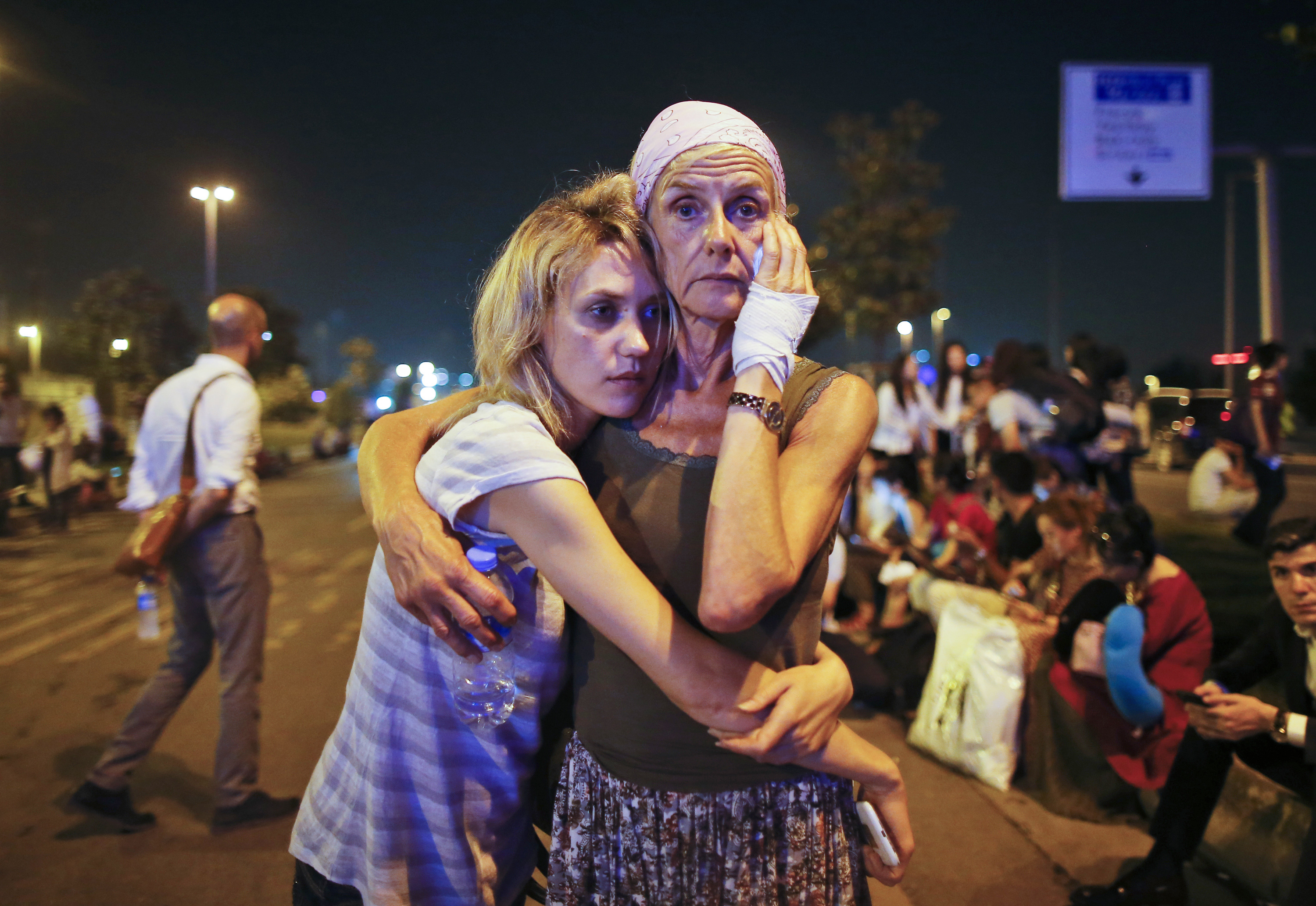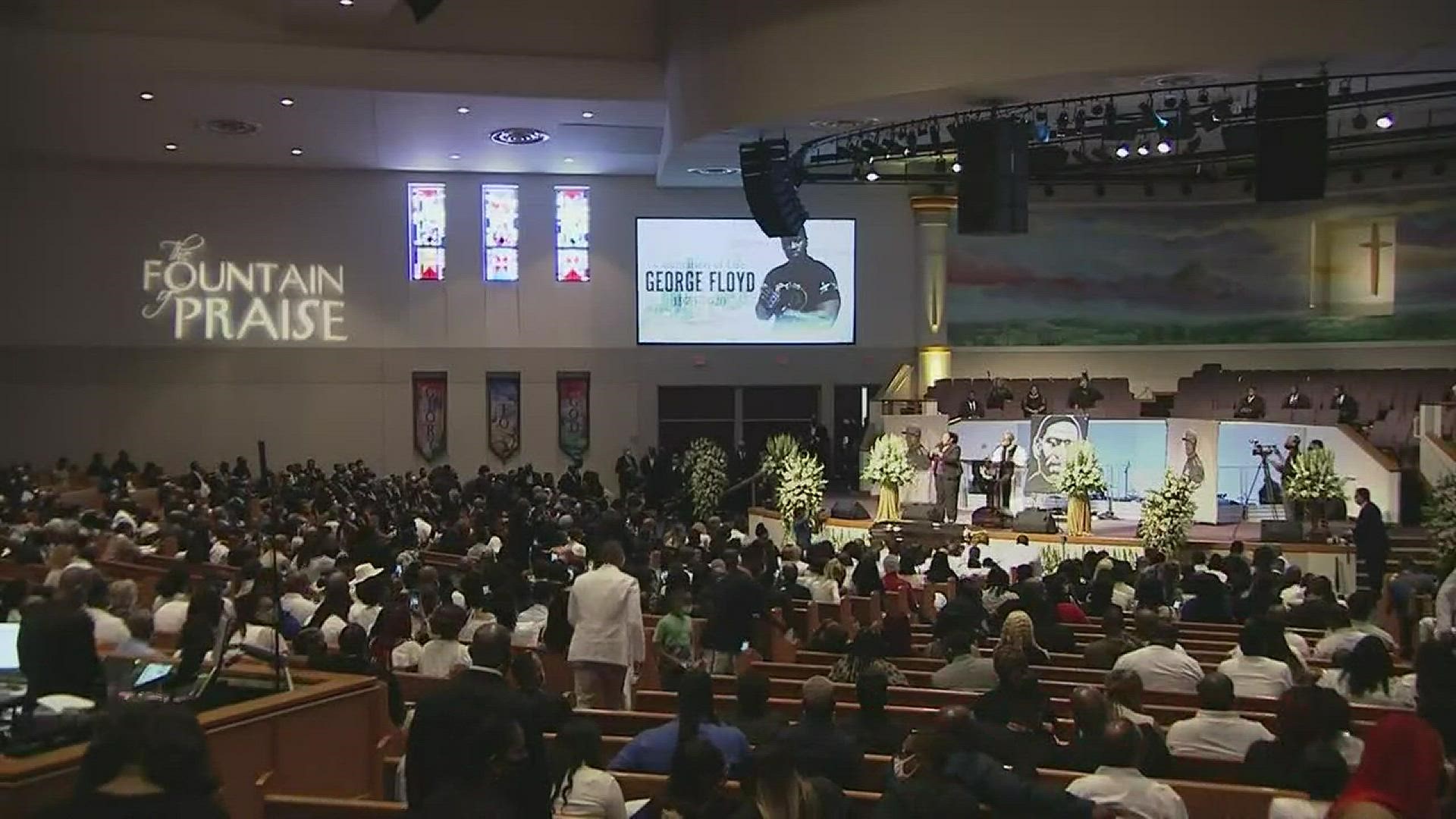It feels as though it's happening everyday: Bodies of the innocent strewn across the airport, the nightclub, the subway. And while we catalog the atrocities with varying degrees of horror, we quickly return to the TV, the meal, the commute, accustomed to a world where the threat of violence is part of the routine.
Experts call it "terrorism fatigue." It's when we find ourselves shrugging at the bombing at the Istanbul airport this week. It's when we shake our heads in June at Orlando, the deadliest mass shooting in U.S. history, but gun control remains gridlocked. It's when we barely remember that more than 70 people, many of them children, died in an attack at a Pakistan park in March.
We have settled into a world where terrorism is the new reality, which has ramifications for how we react to violence, how we react to one another and how we deal with global conflict. It affects the speed and ease with which we move on from bloodshed, it strips us of our ability and willingness to identify with victims in places with cultures unlike our own, and it can keep governments from trying to stop or prevent violence, at home and abroad.
Combating the phenomenon, experts say, is at best difficult, and, at worst, impossible.
"People are exposed to so much information about so many attacks that they start to blur together," said Richard Lachmann, a political sociologist at the University at Albany. "They have trouble connecting with yet more victims, and they, to a large extent, tune it out. They become cold."
That feeling of it happening daily is true when we look at terrorism across the globe. The National Consortium for the Study of Terrorism recorded 14,806 attacks in the Global Terrorism Database in 2015, which averages to 41 attacks per day.
But even though terror attacks aren't happening on a daily basis in the U.S., we are saturated with 24/7 news coverage of incidents abroad and the threat of incidents at home.
Terrorism researcher Alexandra Bradford says post-911, an undercurrent of fear has become our reality. A 2013 Pew survey found 75% of Americans have accepted terrorist attacks as a fact of life, a dire accompaniment to our daily routines.
"Acts of domestic terrorism are actually quite rare, but it feels like they're constantly happening because we're constantly hearing about threats of attacks, of people being radicalized in the U.S., of sleeper cells," she says. "We're bombarded with these narratives, which, of course, is at first frightening, but eventually stops feeling like a big deal, because we're constantly faced with the threat of it."
At some point our fear morphs into resignation.
"Part of it is people don't feel there is a solution that's going to be able to address it," Lachmann says. "In the U.S., it's because politically it's impossible to pass meaningful gun control, people think it's going to keep happening, so trying to figure out why it's happening, thinking about solutions, it doesn't matter."
When defeat makes way for apathy at home, it becomes even harder to express sympathy for victims abroad.
A frequent criticism of Westerners is they seldom value terrorism's victims equally. It doesn't matter how many bombs explode, or boats sink, or bodies are broken, they ignore the tragedies of those who aren't from their own countries, who have different racial backgrounds and different sexual orientations, whose cultures are unlike their own. They don't feel those deaths.
"The view of many Americans is 'that's the way they are,'" Lachmann says. "The 'they' can vary from place to place, but the idea is that it's inherent in the way Muslims are, in the way Africans are. There is no reason to try to do anything."
Lachmann says if people want to avoid having their emotional connections with victims degraded, they'll likely have to consume less cable news. Bradford puts the onus on the media, which she says needs to report on attacks with empathy, focusing on the victims, the details of their lives, their humanity, regardless of where in the world they lived.
Beyond dehumanizing one another, terrorism fatigue can have fatal consequences.
"Certainly the U.S. government isn't going to do all the things it can that might have an effect when there's the accurate judgment that there's no political support for it," Lachmann said.
One wonders what would have happened in Rwanda in 1994 had the U.S. sent in troops, Lachmann says, or what might have happened in Syria in the past five years had the U.S. imposed a no-fly zone.
In 2013, Michael E. Leiter, then-director of the National Counterterrorism Center, testified before the U.S. Senate and warned of the threat of terrorism fatigue.
"After ten‐plus years of near constant public discussion of terrorism — in our politics, the media, and through public messaging — many have simply had enough. ... (T)here is real value in public discussion of terrorism: it can build resilience in the population and it can lead to the tackling of tough public policy questions like targeted killings and domestic intelligence. With terrorism fatigue we run a real risk of not addressing these issues in a way that provides a lasting counterterrorism framework."
You can turn on the TV now.
Dastagir is a mobile editor who writes about media and culture.

![AP APTOPIX TURKEY AIRPORT BLASTS I TUR [image : 86575750]](http://www.gannett-cdn.com/media/2016/06/30/USATODAY/USATODAY/636029084695279455-AP-APTOPIX-Turkey-Airport-Blasts.jpg)

